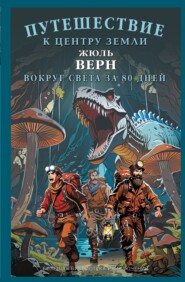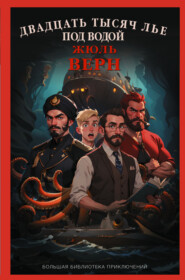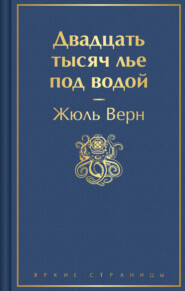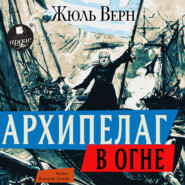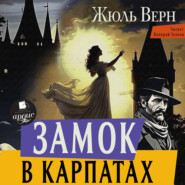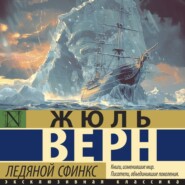По всем вопросам обращайтесь на: info@litportal.ru
(©) 2003-2024.
✖
Celebrated Travels and Travellers, Part 3. The Great Explorers of the Nineteenth Century
Настройки чтения
Размер шрифта
Высота строк
Поля
At Jenneh the travellers were all attacked with fever, the result of the great heat and the unhealthiness of the climate. Pearce and Morrison both died on the 27th December, the former soon after he left Jenneh with Clapperton, the latter at that town, to which he had returned to rest.
At Assondo, a town of no less than 10,000 inhabitants; Daffou, containing some 5000, and other places visited by Clapperton on his way through the country, he found that an extraordinary rumour had preceded him, to the effect that he had come to restore peace to the districts distracted by war, and to do good to the lands he explored.
At Tchow the caravan met a messenger with a numerous escort, sent by the King of Yariba to meet the explorers, and shortly afterwards Katunga was entered. This town is built round the base of a rugged granite mountain. It is about three miles in extent, and is both framed in and planted with bushy trees presenting a most picturesque appearance.
Clapperton remained at Katunga from the 24th January to the 7th March, 1826. He was entertained there with great hospitality by the sultan, who, however, refused to give him permission to go to Houssa and Bornou by way of Nyffé or Toppa, urging as reasons that Nyffé was distracted by civil war, and one of the pretenders to the throne had called in the aid of the Fellatahs. It would be more prudent to go through Yaourie. Whether these excuses were true or not, Clapperton had to submit.
The explorer availed himself of his detention at Katunga to make several interesting observations. This town contains no less than seven markets, in which are exposed for sale yams, cereals, bananas, figs, the seeds of gourds, hares, poultry, sheep, lambs, linen cloth, and various implements of husbandry.
The houses of the king and those of his wives are situated in two large parks. The doors and the pillars of the verandahs are adorned with fairly well executed carvings, representing such scenes as a boa killing an antelope, or a pig, or a group of warriors and drummers.
According to Clapperton the people of Yariba have fewer of the characteristics of the negro race than any natives of Africa with whom he was brought in contact. Their lips are not so thick and their noses are of a more aquiline shape. The men are well made, and carry themselves with an ease which cannot fail to be remarked. The women are less refined-looking than the men, the result, probably, of exposure to the sun and the fatigue they endure, compelled as they are to do all the work of the fields.
Soon after leaving Katunga, Clapperton crossed the Mousa, a tributary of the Quorra and entered Kiama, one of the halting-places of the caravans trading between Houssa and Borghoo, and Gandja, on the frontiers of Ashantee. Kiama contains no less than 13,000 inhabitants, who are considered the greatest thieves in Africa. To say a man is from Borghoo is to brand him as a blackguard at once.
Outside Kiama the traveller met the Houssa caravan. Some thousands of men and women, oxen, asses, and horses, marching in single file, formed an interminable line presenting a singular and grotesque appearance. A motley assemblage truly: naked girls alternating with men bending beneath their loads, or with Gandja merchants in the most outlandish and ridiculous costumes, mounted on bony steeds which stumbled at every step.
Clapperton now made for Boussa on the Niger, where Mungo Park was drowned. Before reaching it he had to cross the Oli, a tributary of the Quorra, and to pass through Wow-wow, a district of Borghoo, the capital of which, also called Wow-wow, contained some 18,000 inhabitants. It was one of the cleanest and best built towns the traveller had entered since he left Badagry. The streets are wide and well kept, and the houses are round, with conical thatched roofs. Drunkenness is a prevalent vice in Wow-wow: governor, priests, laymen, men and women, indulge to excess in palm wine, in rum brought from the coast, and in "bouza." The latter beverage is a mixture made of dhurra, honey, cayenne pepper, and the root of a coarse grass eaten by cattle, with the addition of a certain quantity of water.
Clapperton tells us that the people of Wow-wow are famous for their cleanliness; they are cheerful, benevolent, and hospitable. No other people whom he had met with had been so ready to give him information about their country; and, more extraordinary still, did not meet with a single beggar. The natives say they are not aborigines of Borghoo, but that they are descendants of the natives of Houssa and Nyffé. They speak a Yariba dialect, but the Wow-wow women are pretty, which those of Yariba are not. The men are muscular and well-made, but have a dissipated look. Their religion is a lax kind of Mahommedanism tinctured with paganism.
Since leaving the coast Clapperton had met tribes of unconverted Fellatahs speaking the same language, and resembling in feature and complexion others who had adopted Mahommedanism. A significant fact which points to their belonging to one race.
Boussa, which the traveller reached at last, is not a regular town, but consists of groups of scattered houses on an island of the Quorra, situated in lat. 10° 14' N., and long. 6° 11' E. The province of which it is the capital is the most densely populated of Borghoo. The inhabitants are all Pagans, even the sultan, although his name is Mahommed. They live upon monkeys, dogs, cats, rats, beef, and mutton.
Breakfast was served to the sultan whilst he was giving audience to Clapperton, whom he invited to join him. The meal consisted of a large water-rat grilled without skinning, a dish of fine boiled rice, some dried fish stewed in palm oil, fried alligators' eggs, washed down with fresh water from the Quorra. Clapperton took some stewed fish and rice, but was much laughed at because he would eat neither the rat nor the alligators' eggs.
The sultan received him very courteously, and told him that the Sultan of Yaourie had had boats ready to take him to that town for the last seven days. Clapperton replied that as the war had prevented all exit from Bornou and Yaourie, he should prefer going by way of Coulfo and Nyffé. "You are right," answered the sultan; "you did well to come and see me, and you can take which ever route you prefer."
At a later audience Clapperton made inquiries about the Englishmen who had perished in the Quorra twenty years before. This subject evidently made the sultan feel very ill at ease, and he evaded the questions put to him, by saying he was too young at the time to remember what happened.
Clapperton explained that he only wanted to recover their books and papers, and to visit the scene of their death; and the sultan in reply denied having anything belonging to them, adding a warning against his guest's going to the place where they died, for it was a "very bad place."
"But I understood," urged Clapperton, "that part of the boat they were in could still be seen."
"No, it was a false report," replied the sultan, "the boat had long since been carried down by the stream; it was somewhere amongst the rocks, he didn't know where."
To a fresh demand for Park's papers and journals the sultan replied that he had none of them; they were in the hands of some learned men; but as Clapperton seemed to set such store by them, he would have them looked for. Thanking him for this promise, Clapperton begged permission to question the old men of the place, some of whom must have witnessed the catastrophe. No answer whatever was returned to this appeal, by which the sultan was evidently much embarrassed. It was useless to press him further.
This was a check to Clapperton's further inquiries. On every side he was met with embarrassed silence or such replies as, "The affair happened so long ago, I can't remember it," or, "I was not witness to it." The place where the boat had been stopped and its crew drowned was pointed out to him, but even that was done cautiously. A few days later, Clapperton found out that the former Imaun, who was a Fellatah, had had Mungo Park's books and papers in his possession. Unfortunately, however, this Imaun had long since left Boussa. Finally, when at Coulfo, the explorer ascertained beyond a doubt that Mungo Park had been murdered.
Before leaving Borghoo, Clapperton recorded his conviction of the baselessness of the bad reputation of the inhabitants, who had been branded everywhere as thieves and robbers. He had completely explored their country, travelled and hunted amongst them alone, and never had the slightest reason to complain.
The traveller now endeavoured to reach Kano by way of Zouari and Zegzeg, first crossing the Quorra. He soon arrived at Fabra, on the Mayarrow, the residence of the queen-mother of Nyffé, and then went to visit the king, in camp at a short distance from the town. This king, Clapperton tells us, was the most insolent rogue imaginable, asking for everything he saw, and quite unabashed by any refusal. His ambition and his calling in of the Fellatahs, who would throw him over as soon as he had answered their purpose, had been the ruin of his country. Thanks indeed to him, nearly the whole of the industrial population of Nyffé had been killed, sold into slavery, or had fled the country.
Clapperton was detained by illness much longer than he had intended to remain at Coulfo, a commercial town on the northern banks of the Mayarrow containing from twelve to fifteen thousand inhabitants. Exposed for the last twenty years to the raids of the Fellatahs, Coulfo had been burnt twice in six years. Clapperton was witness when there of the Feast of the New Moon. On that festival every one exchanged visits. The women wear their woolly hair plaited and stained with indigo. Their eyebrows are dyed the same colour. Their eyelids are painted with kohl, their lips are stained yellow, their teeth red, and their hands and feet are coloured with henna. On the day of the Feast of the Moon they don their gayest garments, with their glass beads, bracelets, copper, silver, steel, or brass. They also turn the occasion to account by drinking as much bouza as the men, joining in all their songs and dances.
After passing through Katunga, Clapperton entered the province of Gouari, the people of which though conquered with the rest of Houssa by the Fellatahs, had rebelled against them on the death of Bello I., and since then maintained their independence in spite of all the efforts of their invaders. Gouari, capital of the province of the same name, is situated in lat. 10° 54' N., and long. 8° 1' E.
At Fatika Clapperton entered Zegzeg, subject to the Fellatahs, after which he visited Zariyah, a singular-looking town laid out with plantations of millet, woods of bushy trees, vegetable gardens, &c., alternating with marshes, lawns, and houses. The population was very numerous, exceeding even that of Kano, being estimated indeed at some forty or fifty thousand, nearly all Fellatahs.
On the 19th September, after a long and weary journey, Clapperton at last entered Kano. He at once discovered that he would have been more welcome if he had come from the east, for the war with Bornou had broken off all communication with Fezzan and Tripoli. Leaving his luggage under the care of his servant Lander, Clapperton almost immediately started in quest of Sultan Bello, who they said was near Sackatoo. This was an extremely arduous journey, and on it Clapperton lost his camels and horses, and was compelled to put up with a miserable ox; to carry part of his baggage, he and his servants dividing the rest amongst them.
Bello received Clapperton kindly and sent him camels and provisions, but as he was then engaged in subjugating the rebellious province of Gouber, he could not at once give the explorer the personal audience so important to the many interests entrusted by the English Government to Clapperton.
Bello advanced to the attack of Counia, the capital of Gouber, at the head of an army of 60,000 soldiers, nine-tenths of whom were on foot and wore padded armour. The struggle was contemptible in the extreme, and this abortive attempt closed the war. Clapperton, whose health was completely broken up, managed to make his way from Sackatoo to Magaria, where he saw the sultan.
After he had received the presents brought for him, Bello became less friendly. He presently pretended to have received a letter from Sheikh El Khanemy warning him against the traveller, whom his correspondent characterized as a spy, and urging him to defy the English, who meant, after finding out all about the country, to settle in it, raise up sedition and profit by the disturbances they should create to take possession of Houssa, as they had done of India.
The most patent of all the motives of Bello in creating difficulties for Clapperton was his wish to appropriate the presents intended for the Sultan of Bornou. A pretext being necessary, he spread a rumour that the traveller was taking cannons and ammunition to Kouka. It was out of all reason Bello should allow a stranger to cross his dominions with a view to enabling his implacable enemy to make war upon him. Finally, Bello made an effort to induce Clapperton to read to him the letter of Lord Bathurst to the Sultan of Bornou.
Clapperton told him he could take it if he liked, but that he would not give it to him, adding that everything was of course possible to him, as he had force on his side, but that he would bring dishonour upon himself by using it. "To open the letter myself," said Clapperton, "is more than my head is worth." He had come, he urged, bringing Bello a letter and presents from the King of England, relying upon the confidence inspired by the sultan's letter of the previous year, and he hoped his host would not forfeit that confidence by tampering with another person's letter.
On this the sultan made a gesture of dismissal, and Clapperton retired.
This was not, however, the last attempt of a similar kind, and things grew much worse later. A few days afterwards another messenger was sent to demand the presents reserved for El Khanemy, and on Clapperton's refusing to give them up, they were taken from him.
"I told the Gadado," says Clapperton, "that they were acting like robbers towards me, in defiance of all good faith: that no people in the world would act the same, and they had far better have cut my head off than done such an act; but I suppose they would do that also when they had taken everything from me."
An attempt was now made to obtain his arms and ammunition, but this he resisted sturdily. His terrified servants ran away, but soon returned to share the dangers of their master, for whom they entertained the warmest affection.
At this critical moment, the entries in Clapperton's journal ceased. He had now been six months in Sackatoo, without being able to undertake any explorations or to bring to a satisfactory conclusion the mission which had brought him from the coast. Sick at heart, weary, and ill, he could take no rest, and his illness suddenly increased upon him to an alarming degree. His servant, Richard Lander, who had now joined him, tried in vain to be all things at once. On the 12th March, 1827, Clapperton was seized with dysentery. Nothing could check the progress of the malady, and he sank rapidly. It being the time of the feast of the Rhamadan, Lander could get no help, not even servants. Fever soon set in, and after twenty days of great suffering, Clapperton, feeling his end approaching, gave his last instructions to Lander, and died in that faithful servant's arms, on the 11th of April.
"I put a large clean mat," says Lander, "over the whole [the corpse], and sent a messenger to Sultan Bello, to acquaint him with the mournful event, and ask his permission to bury the body after the manner of my own country, and also to know in what particular place his remains were to be interred. The messenger soon returned with the sultan's consent to the former part of my request; and about twelve o'clock at noon of the same day a person came into my hut, accompanied by four slaves, sent by Bello to dig the grave. I was desired to follow them with the corpse. Accordingly I saddled my camel, and putting the body on its back, and throwing a union jack over it, I bade them proceed. Travelling at a slow pace, we halted at Jungavie, a small village, built on a rising ground, about five miles to the south-east of Sackatoo. The body was then taken from the camel's back, and placed in a shed, whilst the slaves were digging the grave; which being quickly done, it was conveyed close to it. I then opened a prayer-book, and, amid showers of tears, read the funeral service over the remains of my valued master. Not a single person listened to this peculiarly distressing ceremony, the slaves being at some distance, quarrelling and making a most indecent noise the whole time it lasted. This being done, the union jack was then taken off, and the body was slowly lowered into the earth, and I wept bitterly as I gazed for the last time upon all that remained of my generous and intrepid master."






